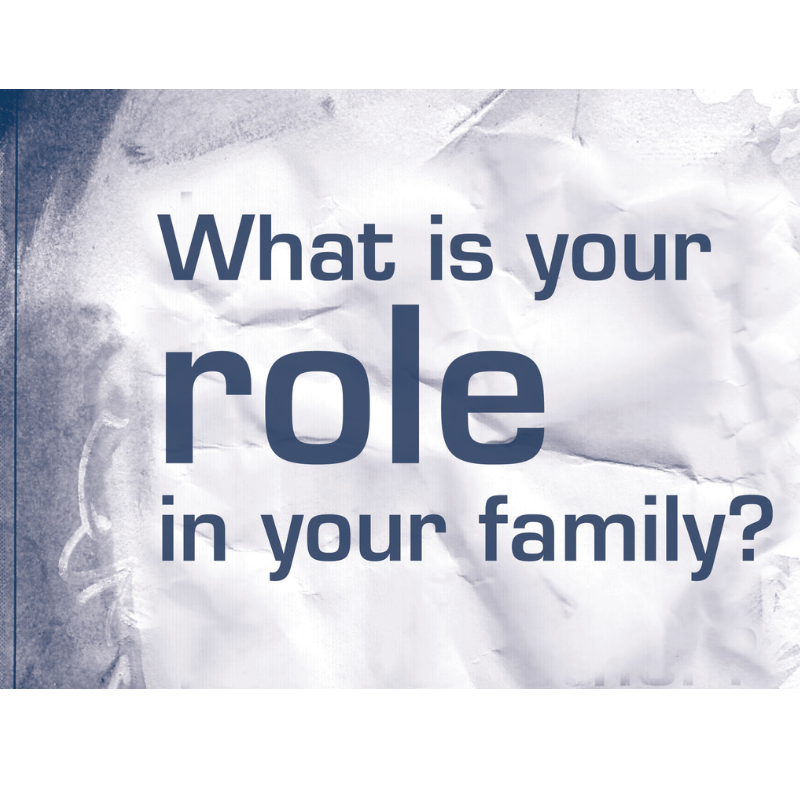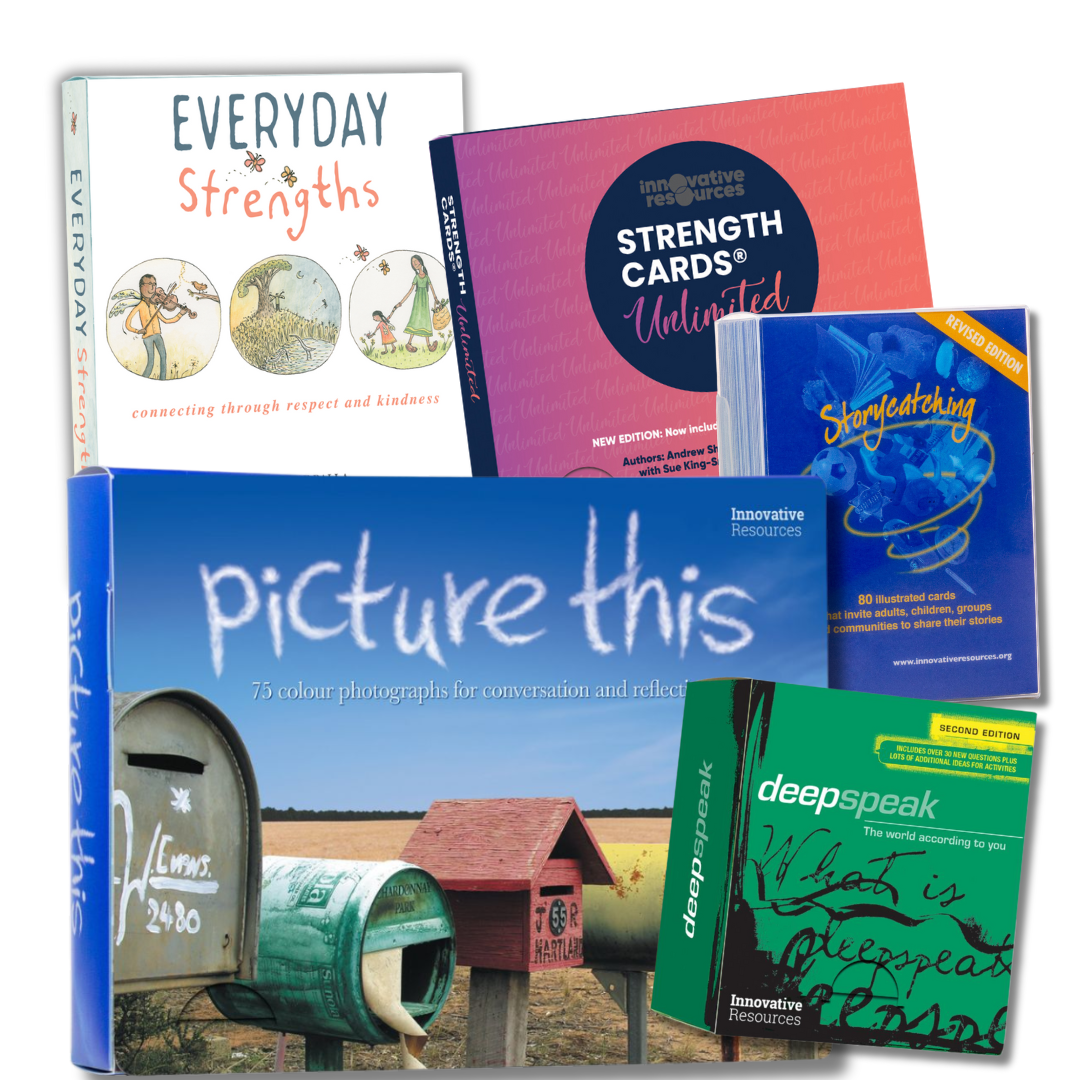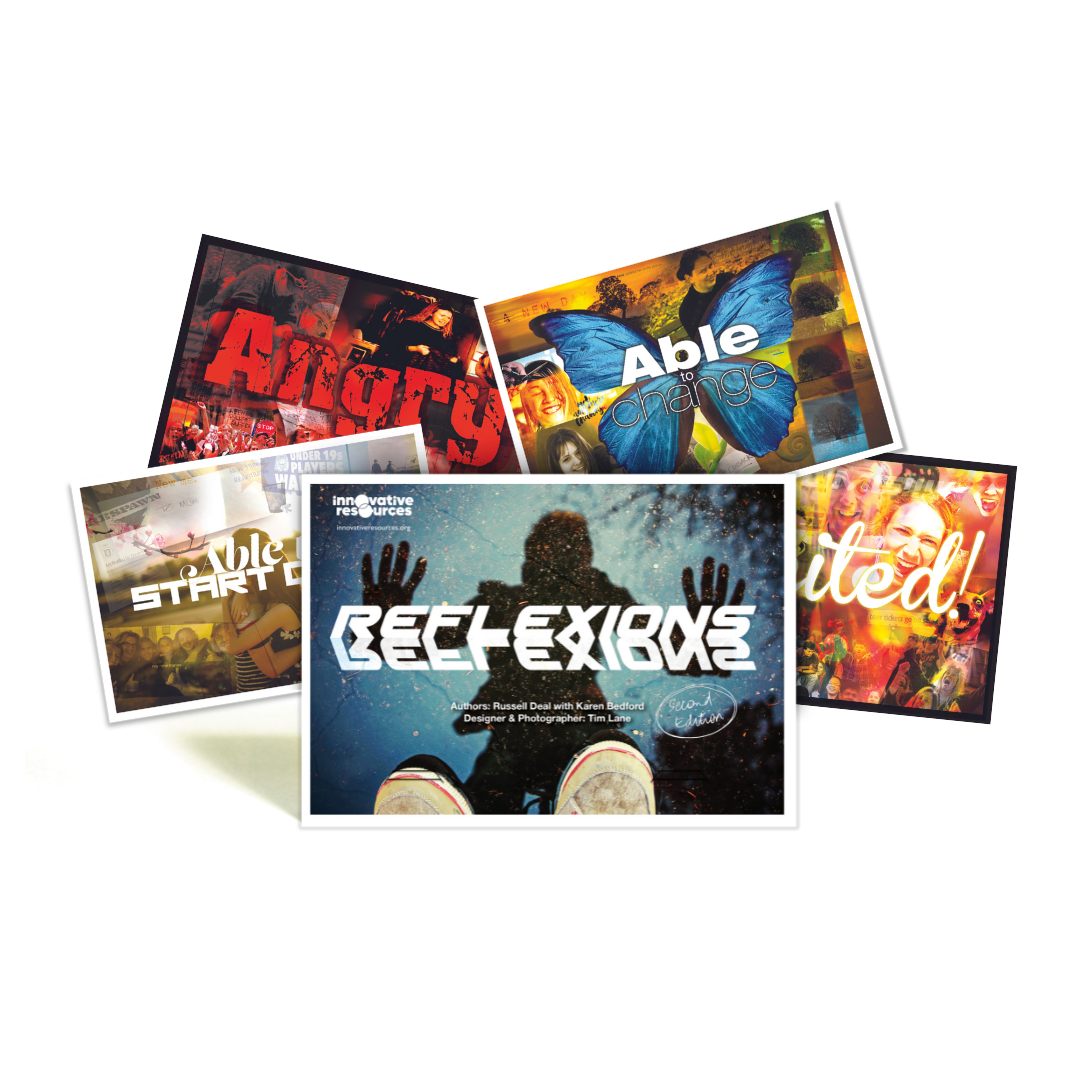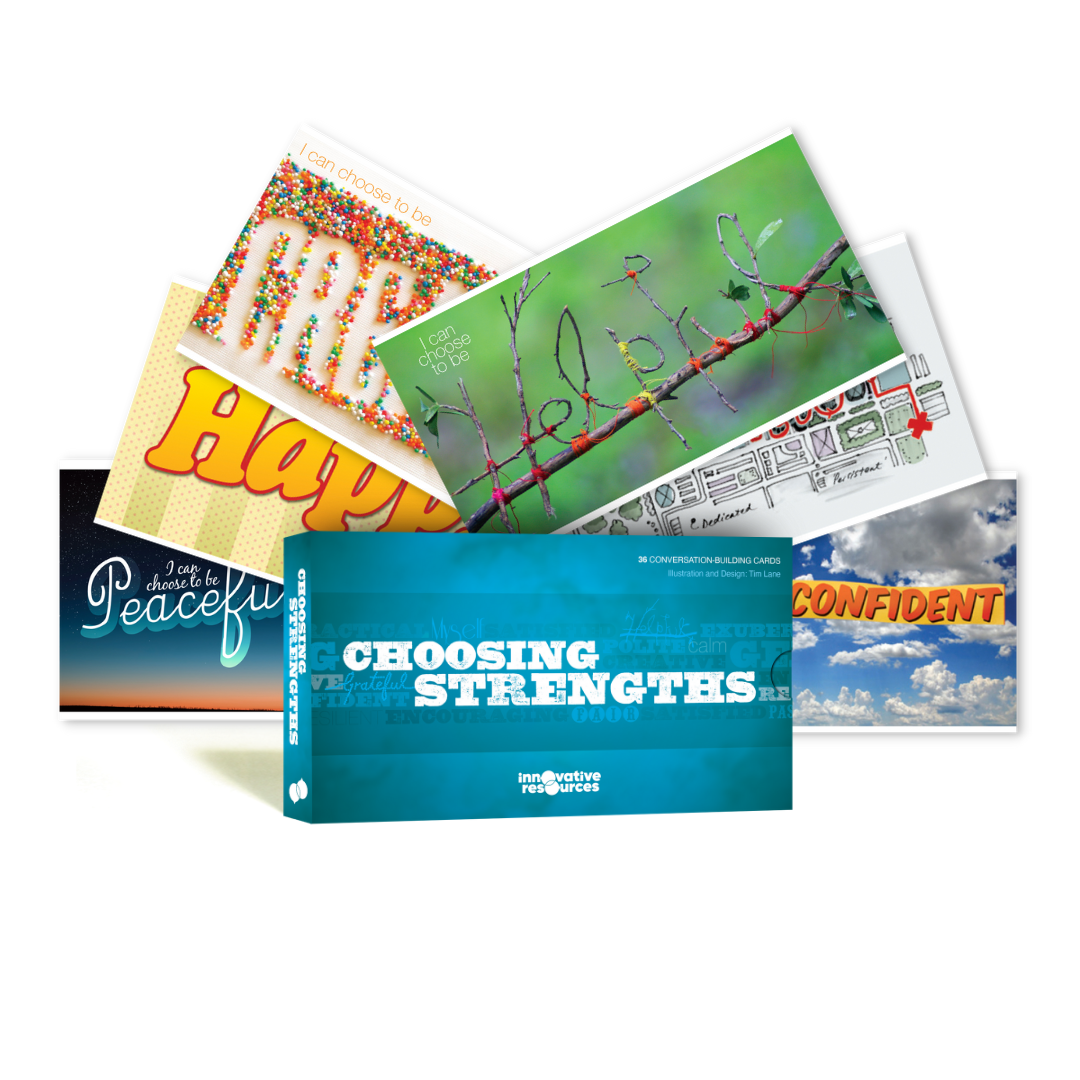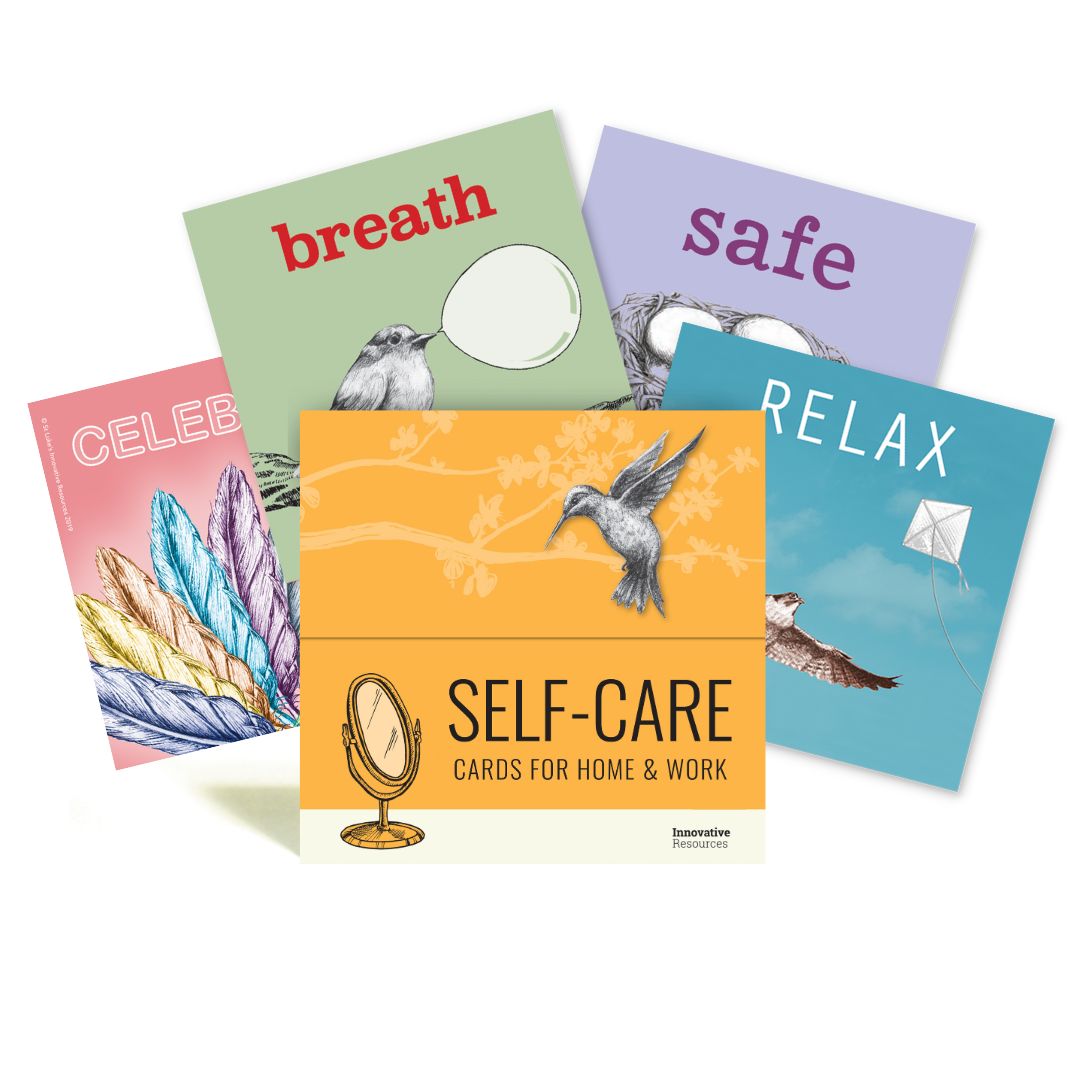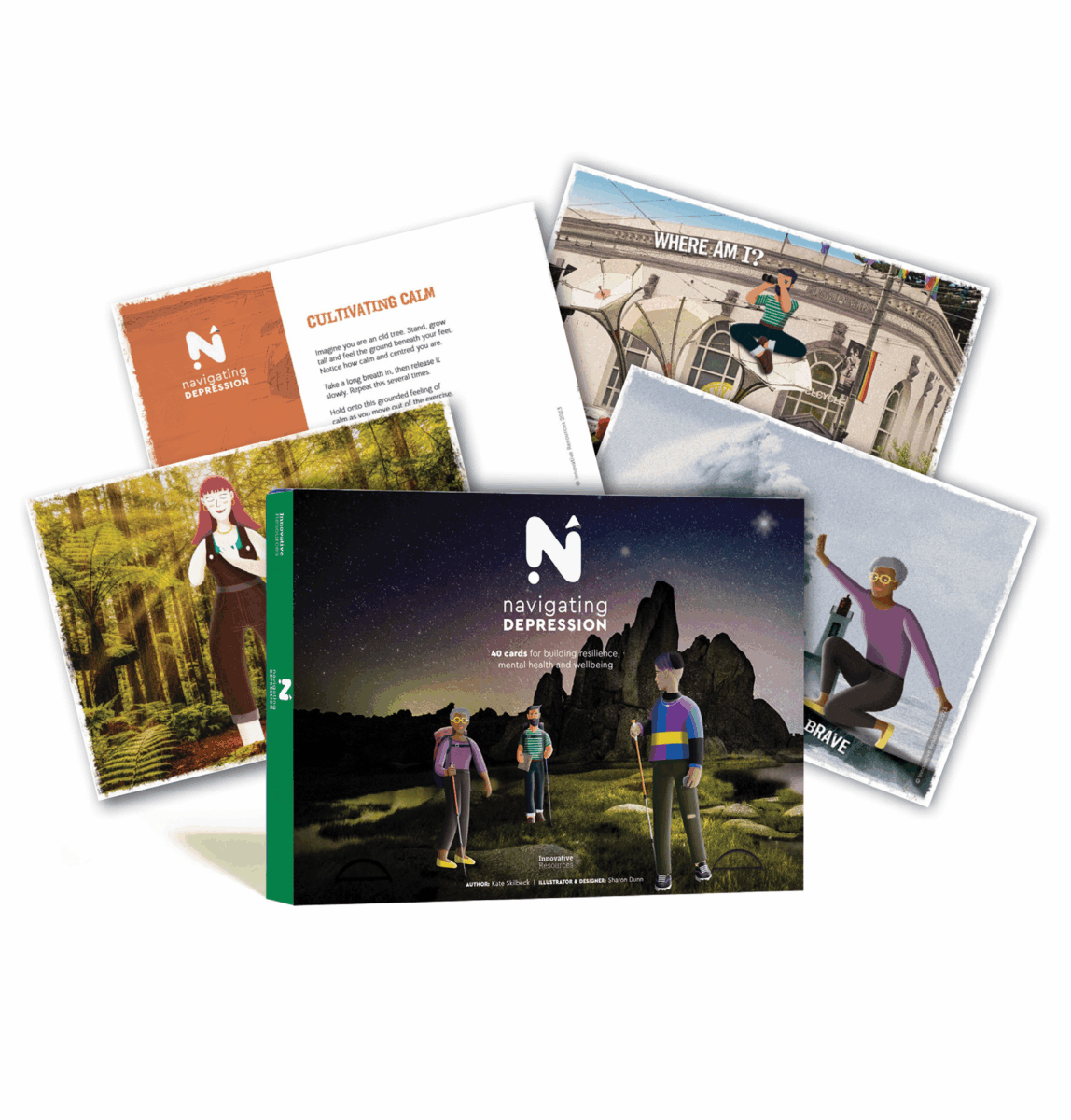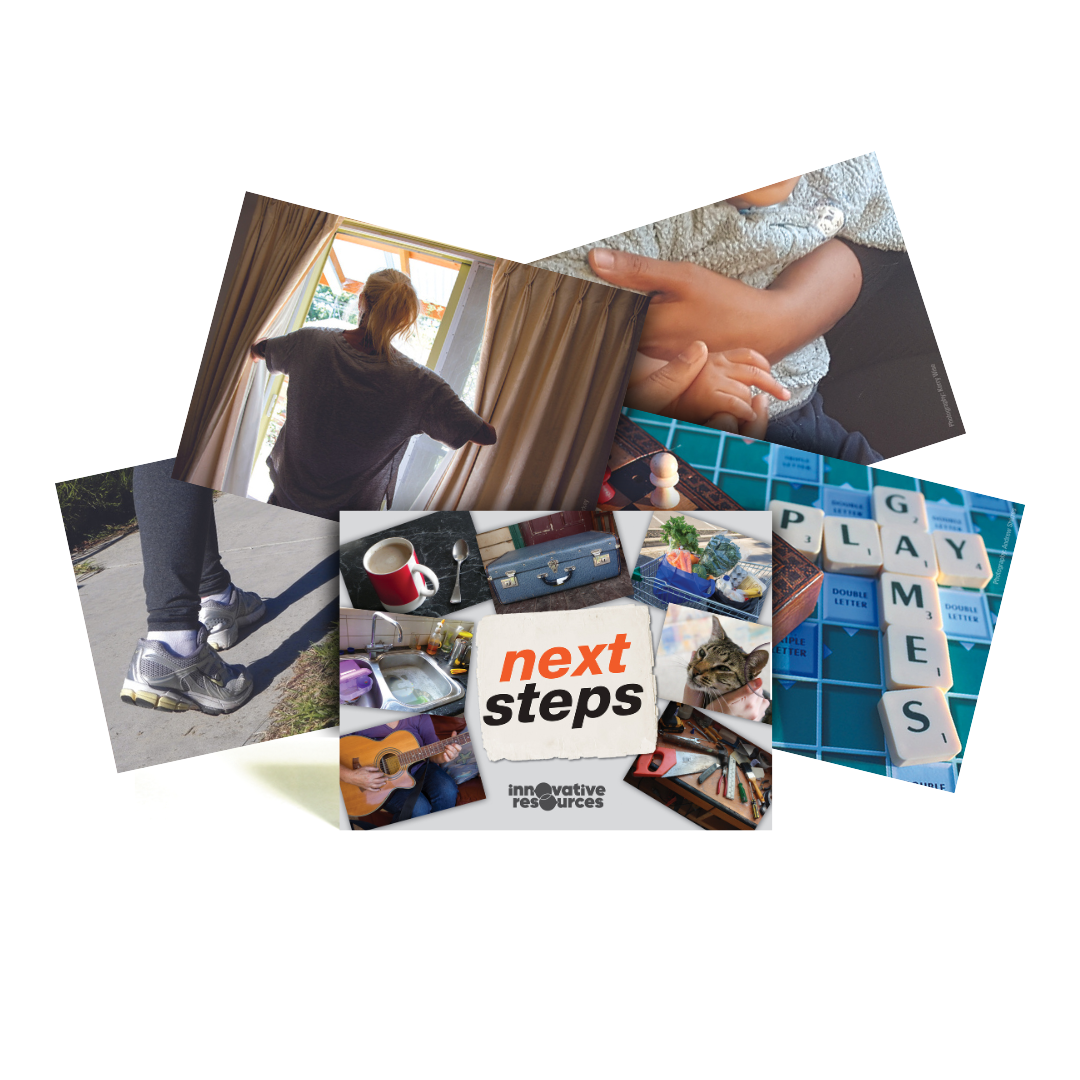



card sets
Deep Speak second edition
Product Code: 4201
$79.95 inc. GST
120 big questions about life, for opening up reflective conversations with young people and adults
181 in stock (can be backordered)
Product Overview
Have you experienced the transformational power of the right question at the right time? Questions can change people’s lives.
Deep Speak invites us to explore some of life’s big questions. Each of these 120 unique, beautifully-designed cards includes a single question—some of these questions are light-hearted, some are highly personal, some may be confronting or challenging. All of them invite us to reflect on ourselves, our relationships with others and our unique experience of the world.
In this new edition, there are even more questions about the issues and topics that are important to young people and adults alike—the environment, gender diversity, culture, identity, and social issues.
Deep Speak is divided into six suits—openers, identity, relationships, values, emotions & beliefs—allowing you to curate the cards around the topics or themes you’d like to discuss, or the preferences of a group.
An engaging and thought-provoking resource for educators, mental health workers, spiritual care practitioners, youth workers or anyone employed in juvenile justice.
What's Included?
- 120 laminated, full-colour cards (120mm x 105mm) in a sturdy folio box
BONUS: Free access to the Deep Speak Digital Toolbox
- Digital version of the cards and a digital booklet full of ideas for using the cards
- Extra support resources including ideas bank, card hacks and blogs
To use the digital toolbox, simply create a customer account. All digital products follow our Digital Usage Policy – see Copyright and Digital Usage for details.
How to Use
- As a conversation starter: Put the deck of cards in front of a person and ask them to ‘cut the deck’. Take the top card and use the question as a starting point. In groups, place a card randomly on each person’s seat before they enter the space. Encourage people to form pairs and ask the question to their partner.
- In a classroom: Divide the class into 6 groups and allocate one suit to each group. Each group can choose a card and think of a movie or book where this question is the central theme. How did the book or movie deal with that question? Would they have approached it differently?
- Journalling: Pick a question and imagine two characters. What do each of them have to say in response to the question?
- Personal reflection: Choose a card that represents something you’ve never thought about before. How does the question change the way you see the world or yourself?
For more inspiration, explore our Ideas Bank.
Suitable for
This resource is designed for people working in roles that support others, including:
- Secondary teachers
- Counsellors, psychologists and social workers
- Spiritual care practitioners
testimonials
- Discover what makes our products a favourite!



